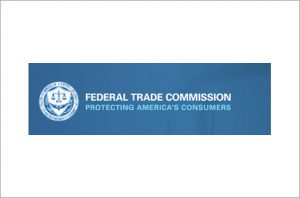FTC warns domain-name expansion poses ‘significant threat to consumers’


December 16, 2011
In its letter to ICANN, the Commission warned that rapid expansion of the number of generic top-level domain names (gTLDs) – the part of the domain name to the right of the dot, such as “.com,” “.net” and “.org” – could create a “dramatically increased opportunity for consumer fraud,” and make it easier for scam artists to manipulate the system to avoid being detected by law enforcement authorities. The Commission urged ICANN – before approving any new gTLD applications – to take additional steps to protect consumers, including starting with a pilot program to work out potential problems.
“A rapid, exponential expansion of gTLDs has the potential to magnify both the abuse of the domain name system and the corresponding challenges we encounter in tracking down Internet fraudsters,” the Commission’s letter states.
ICANN intends to allow website operators to apply for new gTLDs starting on January 12, 2012.
The Commission letter noted that the FTC has raised consumer protection issues with ICANN for more than a decade. The Commission stated that the FTC and other law enforcement agencies need to navigate the domain name system in order to investigate cases of unfair or deceptive practices online, and the existing system already is open to manipulation by scam artists seeking to avoid detection. The FTC routinely consults the “Whois” service, which lists the identities and contact information of website operators. However, the Commission explained that the Whois service often contains incomplete or inaccurate data or, increasingly, proxy registrations, which shields contact information even for domain name registrants engaged in commercial activities.
The increase in website names that could be registered in the new gTLDs would put “infinite opportunities” at the fingertips of scam artists, who take advantage of consumers through tactics such as using misspelled names to create copycat websites, the Commission’s letter states.
“In short, the potential for consumer harm is great, and ICANN has the responsibility both to assess and mitigate these risks,” the letter states.
Before approving any new gTLD applications, the FTC urged ICANN to:
implement the new program as a pilot program and substantially reduce the number of generic top level domains that are introduced as a result of the first application round;
strengthen ICANN’s contractual compliance program, in particular by hiring additional compliance staff;
develop a new ongoing program to monitor consumer issues that arise during the first round of implementing the new gTLD program;
assess each new proposed generic top level domain’s risk of consumer harm as part of the evaluation and approval process;
improve the accuracy of Whois data, including by imposing a registrant verification requirement.
The Commission letter warned “If ICANN fails to address these issues responsibly, the introduction of new gTLDs could pose a significant threat to consumers and undermine consumer confidence in the Internet.”